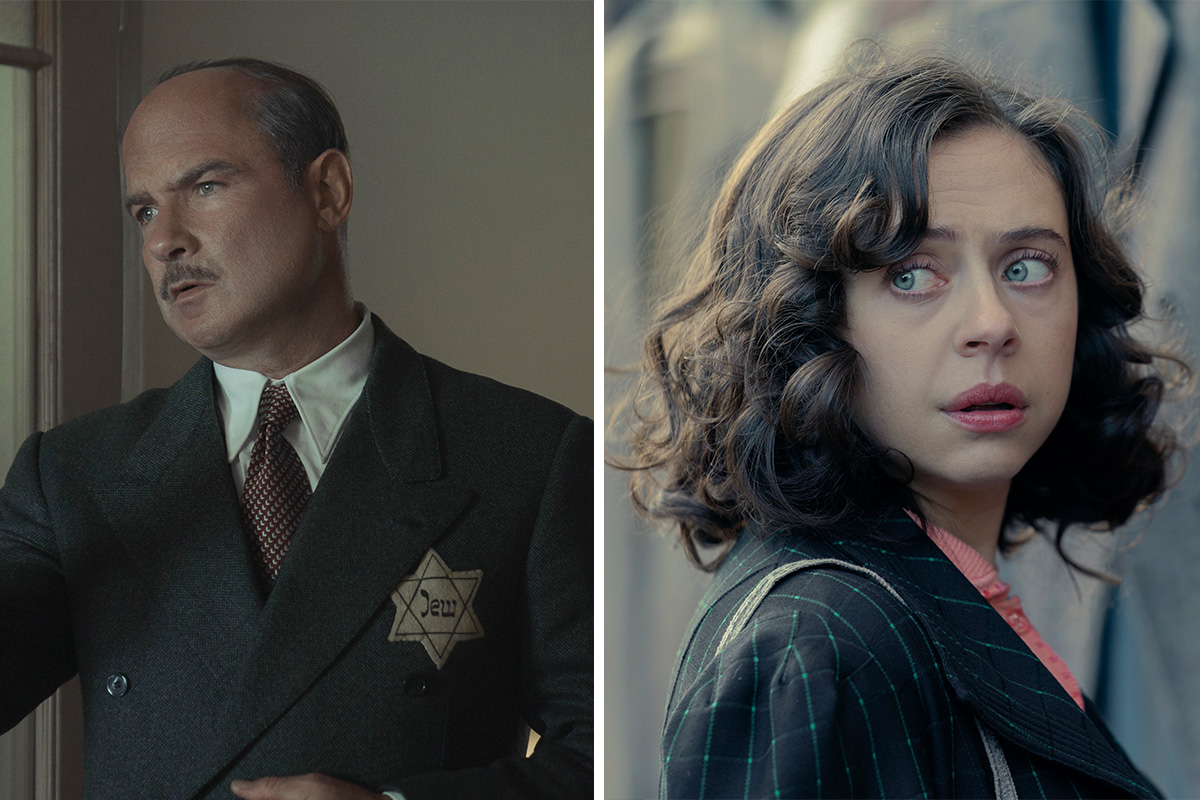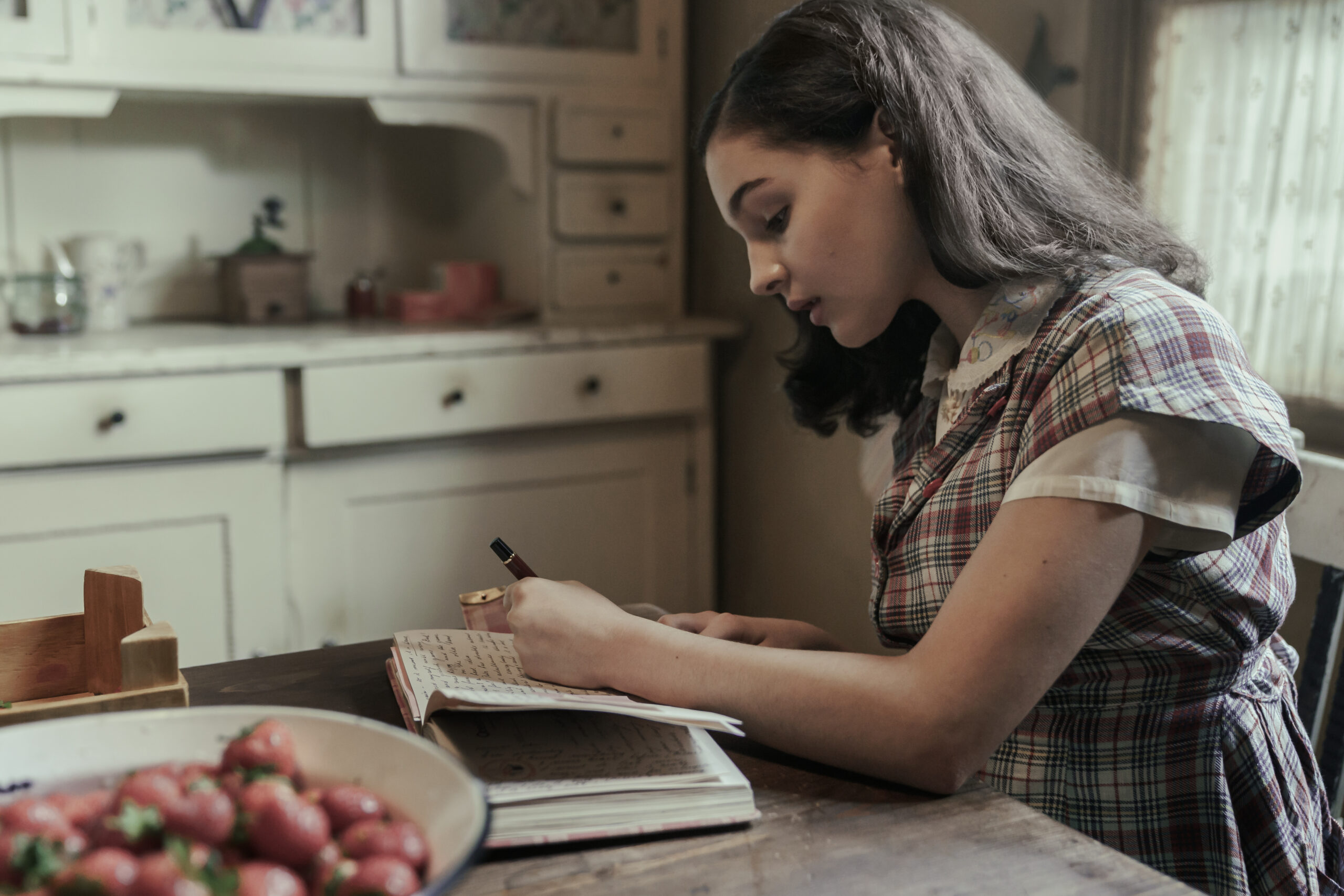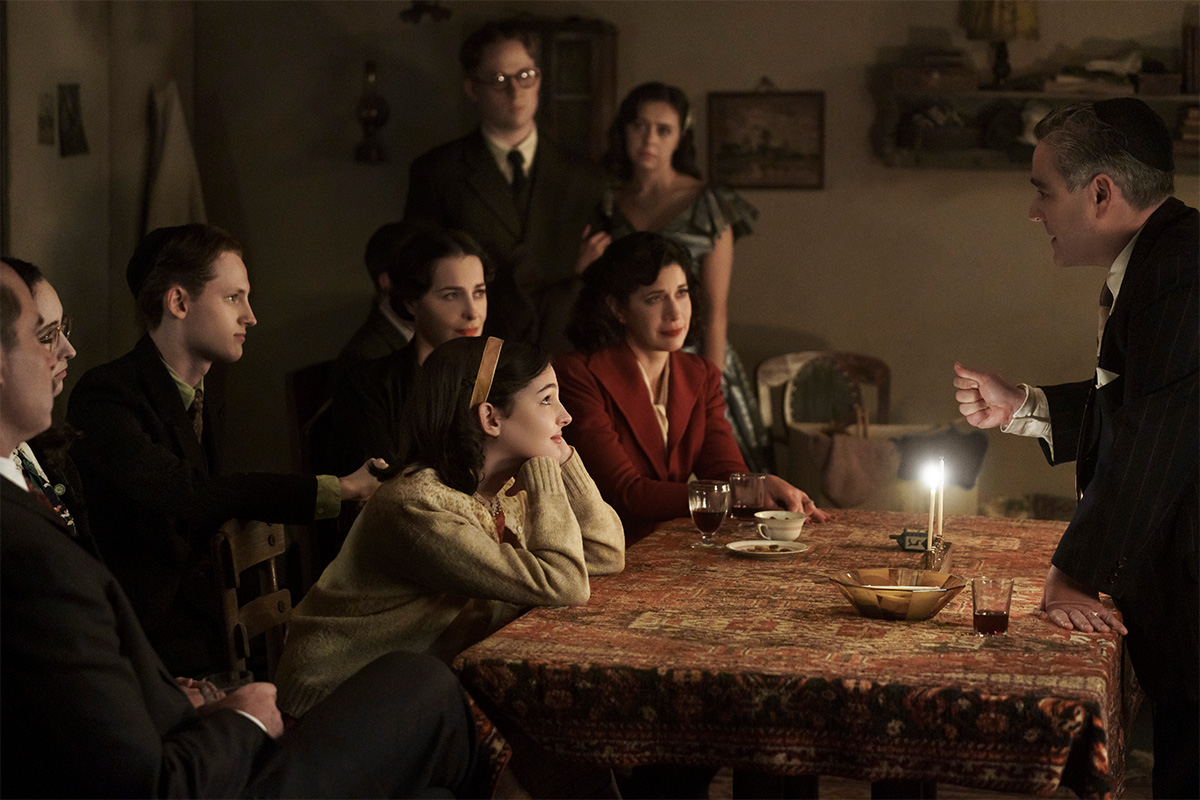Warning: Spoilers ahead for “A Small Light.”
As obsessed with Jewish pop culture as I am, you will not often catch me watching fictional Holocaust dramas. Don’t get me wrong — I’m a big documentary girly. I’ve cleared out the Holocaust documentary section on basically every streaming platform there is (my most recent favorite being Ken Burns’ “The U.S. and the Holocaust.”) And growing up in a synagogue which heavily emphasized Holocaust education (read: a synagogue), I’ve read account after account from survivors. But no matter how carefully they’re done, fictionalizations and dramatizations of the Holocaust often feel like voyeuristic trauma porn to me, and I can rarely stomach them.
“A Small Light,” a miniseries on Disney+ which premieres tonight, has proved to be an exception to my rule.
Created by Joan Rater and Tony Phelan with musical direction from Este Haim, “A Small Light” centers on the story of Austrian-born Dutch woman and righteous gentile Miep Gies. Through eight powerful episodes, the viewer sees Miep grow from a carefree young person to one of the people who helped hide the Frank family, later safeguarding Anne Frank’s diary and legacy. After gaining recognition through Anne’s diary, Miep was known to have said, “Even an ordinary secretary or a housewife or a teenager can, within their own small ways, turn on a small light in a dark room,” which inspired the title for the series.
Now, I can probably guess what you’re thinking, because I, too, was initially skeptical. You’re likely saying in your head,“You’re singing the praises of a Holocaust show whose main character isn’t Jewish?”
Yes — yes, I am. Let me tell you why.
First and foremost, even if the main character isn’t Jewish, the show is led by Jewish actors Bel Powley and Liev Schreiber in what can only be described as absolutely powerhouse performances. Powley shines in her portrayal of Miep Gies, creating a character who is as strong as she is relatable and accessible to contemporary audiences. At the same time, Schreiber achieves an expected, yet still affecting bone-deep heartbreak as Otto Frank, a Jewish patriarch determined to save his family and friends from the Nazis. Together, the pair establish a beautiful, even humorous rapport between co-workers and friends — not only adding a necessary levity to “A Small Light,” but also reminding the viewer that Otto Frank, and his family by extension, are more than just symbols of the Holocaust. They were real-life people who, before and even in hiding, felt joy, laughed and were surrounded by people who cared for them.

Though I don’t believe only Jews could play these characters well, as a Jewish viewer, I also felt a certain level of comfort knowing that Powley and Schreiber brought a visceral understanding of the Holocaust to their performances. “I’m Jewish myself, so you grow up with this weight of history running through your family,” Bel told The Guardian in a recent interview. (Bel’s great-grandparents fled antisemitic pogroms in Lithuania in the early 20th century, ending up in Dublin, Ireland.) In the same interview, she also acknowledged the show’s importance for modern viewers, saying, “There are so many parallels with what’s happening today. Authoritarian regimes are popping up all over the world. Antisemitism is massively on the rise. There are more displaced people now than ever. In some ways, this could be seen as a cautionary tale about the dangers of dictatorships scapegoating groups of people.”
Similarly, Liev, whose maternal grandfather was a Ukrainian Jewish immigrant to America, brought his own experience as a Jew to the role. In the final episode of the series, “Legacy,” when Miep and her husband Jan discover that Peter van Pels, who hid in the secret annex alongside his family and the Franks, died at Mauthausen, Otto gathers his friends in the secret annex to say the mourner’s kaddish. It’s an extremely compelling moment made even better by the fact that Liev’s Hebrew pronunciation is flawless and his Ashkenazi inflection is authentic. Moreover, at the New York City premiere of “A Small Light,” Liev shared an anecdote about his mother teaching him about the Holocaust as a child. When she told him that Jews were targeted, Liev remembered thinking, “Well, I’ll just tell [Nazis] I’m not a Jew. That’s what I would do.” Liev went on to explain that the innocence of that thought was something he tried to capture in his portrayal of Otto Frank, in addition to conducting his own research on Otto at the Anne Frank House.
As much as the show is about Miep’s heroism, I also so appreciated how “A Small Light” highlights the bravery of Jews and the queer community, especially since so many Holocaust dramas paint them purely as victims. In episode four, Miep and Jan join the Frank family, the Van Pels family and Dr. Pfeffer for Hanukkah in the secret annex. Empowered by his Jewish friends and the story of the Maccabees, Jan later confesses to Miep that he has begun hiding Jews from the Nazis on his own. “Those people in there have lost everything and still they resist. And I have to resist too,” he reveals, voice shaking with emotion.

A host of courageous background characters also get their due in “A Small Light.” While some are invented for the show, like Jewish nurses Liesje and Betje who save children and babies from deportation, others are based on real-life people. Through Jan’s independent work with the Dutch resistance, the show introduces Willem Arondeus, a gay Dutch fighter who orchestrated the bombing of the Amsterdam public records office on March 27, 1943. In doing so, Arondeus and the Dutch resistance destroyed 800,000 identity cards of Dutch Jewish citizens, thus preventing the Nazis from identifying them. Though he was caught and executed for his participation in the action, Willem’s final words, which are spoken in “A Small Light,” were, “Tell people that homosexuals are not cowards.”
Alongside Arondeus, viewers also meet Freida Belinfante, a lesbian member of the Dutch resistance descended from Sephardic Jews from Portugal. Together with Willem, Freida participates in the bombing of the records office (and other illegal activities like forging identity documents for Jews) — and, in her sharp suits and ties, looks incredibly butch while doing it. In the show, Freida ultimately survives the action. (In reality, Freida survived by going into hiding and pretending to be a man. After the war, she emigrated to the United States and became the founding director and conductor of the Orange County Philharmonic.) Before “A Small Light,” I had never heard of the heroism of Willem Arondeus and Frieda Belinfante, and as a queer Jew, I found Frieda’s story particularly moving.
I don’t know if “A Small Light” will inspire me to watch more Holocaust dramas — in part because I think I’ve already seen the best one. But at a time when school boards across the United States are banning necessary books like “The Diary of Anne Frank,” “Maus” and “Night,” “A Small Light” inspires me to hope that Holocaust narratives will continue to be told — and can be told well. For me, that might even be a pretty big light.



